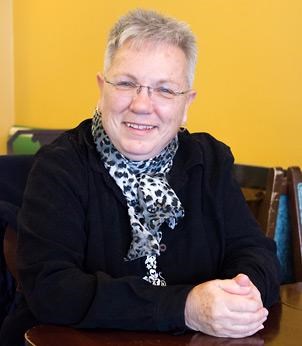Concerns have been raised about the future of a hospice volunteer program in Powell River after funding for the program’s coordinator was cut.
The volunteer hospice program has been operating for the past 20 years in Powell River, said lead hospice volunteer Kathy Kirnan.
Linda deVries, grief counsellor and Powell River Community Health Hospice and Caregiver Program coordinator, was running this program at the hospital and helped train volunteers, said Kirnan.
Vancouver Coastal Health (VCH) eliminated deVries’s position last fall which has since, in Kirnan’s words, left the group “floundering.”
There are currently 16 volunteers in the group, but without deVries’s help Kirnan does not know how the group will find or train more volunteers.
She said that when she started out she went through a fairly extensive training program from deVries which provided an introduction to the concept of hospice, dealing with grief and loss, improving communication skills and palliative care. The training lasted more than two months and gave the volunteers a wide variety of experiences to help them including visiting a massage therapist to learn some foot and shoulder rubbing techniques and visiting a funeral home and finding out what kinds of services are offered.
One of Kirnan’s biggest concerns, she said, is making sure that volunteers are ready and have the competence to handle sensitive situations. She said that because a lot of the work the volunteers do is in the hospital, medical staff need to have confidence that the volunteers are going to be helpful rather than create stressful situations.
“I just think there needs to be someone overseeing to make sure that things are done properly because it’s such a sensitive time for families,” she said. “If you’re just dealing with this kind of loss on a personal basis you kind of know where your boundaries are, but when you go in as a volunteer, you have to be supportive but also hands off at the same time. You can’t be telling people what they should or shouldn’t be doing and provide information about what’s available in the community. A lot of time people just need someone to listen to them.”
Viola Kaminski, VCH spokesperson, said that while the health authority recognizes the importance of counselling support as an overall part of palliative care, it found that this type of counselling service was already being provided by other VCH community health workers and there were also service options available in the community.
“Like all health authorities, VCH regularly reviews the services we provide and sometimes that means making difficult decisions about how we deliver what’s needed most,” said Kaminski. “We greatly appreciate the work the previous coordinator did on behalf of palliative care patients in the Powell River area. However, we felt that since comparable services were already offered elsewhere for patients, we had to focus on our mandate of providing the best care to the greatest number of people in need.”
Kaminski added that the role of coordinating and referring volunteers will now be handled in a variety of ways through home care nursing staff, acute and community care.
Sandy McCartie is a clinical counsellor living in Powell River and has had experience working with the Surrey Hospice Society. She said that it is common for communities to have hospice societies and that perhaps the health authority is opting to put more of the responsibility for these services on the community. McCartie added that Joanne Murray, resource navigator at Powell River Division of Family Practice, is currently trying to ask as many people as possible to see if a Powell River hospice society should be put forward.
Any readers interested in helping to start a hospice society can contact Murray at [email protected].



